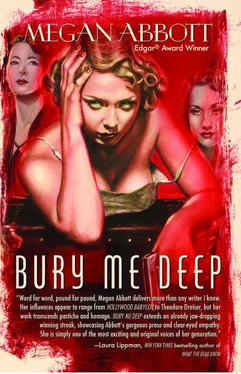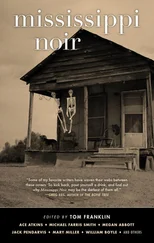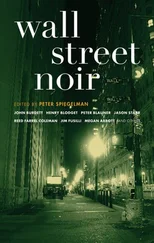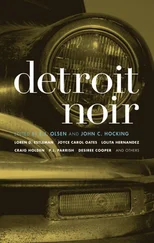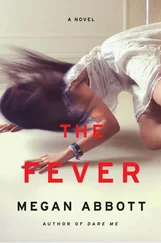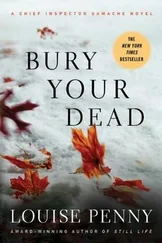She put on her hat, hair pushed beneath, and walked, down faced, to the streetcar. It was too early and the cars were not running, so she proceeded on foot. She walked along Thaler Avenue, which snaked its way fourteen blocks to Gideon Square, and everything was still and a forlorn feel was in the air.
There was a low creaking coming from somewhere in the square, and also a high singing, almost a mewl. A man crooning brokenly about a girl whose cousin was a drunkard in Cincy and died with a peach of a bun, and her uncle’s a preacher in Quincy, a nutty old son of a gun. Peering, she could see the man, who was lying at the foot of the center fountain, a stone-struck phoenix rising to the heavens, and he was singing to a girl, she looked like a girl, with her arms wrapped tight around herself, a pitch of blood on her shirtfront and it was the lungs. Was anyone left in this whole lonely world with lungs not patched together as if from tattered muslin and cobwebs? They all came to the desert, like she had, they blew in from all corners, they came to the desert to build themselves anew. Isn’t that what she had done, wasn’t she anew?
She skittered around the square and no one bothered her, and she fancied, with her pitted stockings, her day-worn dress, the dirty tendrils of dark-rooted platinum slipping from her hat, she looked the part. She looked the part, and one poor woman, face a smear of booze-washed sorrow, offered her a glug of grain and Marion almost took it, but did not.
No Dr. Seeley. No Dr. Seeley, but she would not stop.
She called out, “Everett!” She called out, “Everett!” and got more than one answer, but never from her husband.
She wended from a lean-to on one side of the square to a tangle of boys playing three-card molly to the central newsstand opening for the day. And there was an old garage, the owner long gone, the shell of the place all intact, a few stray automobile parts hanging, and a spent cooking fire in the center. She could see four, five men and a woman folded in small corners, sleeping. One man was whittling smooth strokes of rosewood and he only nodded at Marion, who nodded back.
“Everett,” she said, barely a whisper now. “Everett, are you there?”
That was when she saw a hand wrapped around a brown glass quart of Chlorodyne with the Valiant label curling off the side.
And she saw the pale face of Dr. Seeley, skin like wet paper, head resting against a stripped tire, mouth slightly open.
“Everett,” she whispered, moving toward him. “Everett…”
She put her hand to him, the bluing lips, and his eyelids seemed to slide open, but the eyes were dead, black specks floating serene.
Then the eyes shut again.
His skin, the coldest marble she ever felt.
“Haint ever seen one take so much,” came a voice in her ear. It was the man whittling the wood. “Haint ever seen such. He start with the syrup and then one came with the cubes and kit and hence he tore in with the needle too. A starving man, he.”
Marion turned to face him. “And you just watch? Look at him. You just watch?”
The man looked at her. “What do you do?” he asked her. “What do you do, miss? When it’s that way, there is only to watch.”
She turned back to her husband, placed her fingers on his wrist and the pulse sludging, and it was like the time she found him in the bathtub at the Prescott rooming house. He spent three days in the private hospital with the doctor who promised he could wash his brain to clean the habit, but then the money ran out.
Holding his hand, she felt a panic all through.
Five seconds.
Five seconds she gave to thought. She could run for help and then, while they tended, flee. She could walk away knowing that Everett had tended himself many times after too much, much too much, had taken care of himself a dozen, perhaps a hundred times or more and always stood again. He knew what to do, he did. She knew he would want her to run. He would want her to save herself. She ran through this thought, but for five seconds only.
There were things she had done that she had never guessed she could do.
Things that had now seeped into her bones and changed her forever. Seeped into her bones and now she was sick from inside out. Diseased and lost.
But this, abandoning him, this thing was the thing she could never do. She was glad to know it about herself. There was something left.
“WHERE IS THE NEAREST HOSPITAL?” she asked the man at the newsstand, and he told her it was two blocks and she said, breathless, “Can you summon a policeman?” and he looked at her long and hard, and said he would.
It was while turning to run back to her husband that she saw her own photograph, in clinic garb, spread across three different early editions, hanging six sheets abroad the top of the stand. All the headlines shrieked in her ears:
BLOODY TRUNKS FOUND IN LOS ANGELES HOTEL
Two Bodies Found Inside, Believed to Be Missing Girls
BLONDE SOUGHT:
SHE SHIPPED DEATH TRUNKS, POLICE SAY
Hotel Employee IDs Doctor’s Wife
She did not stop long enough to read further. She did not stop at all.
Tearing back to the garage, to Dr. Seeley, she gazed up at the phoenix wings towering over the center of the square and thought they might block out the sky entire.
Something in her lifted, something in her lifted and the weight, all the weight, it was gone. In her head, she heard strands of wavery ukulele and could see Ginny dancing, white arms curled about her like those arching wings, dancing and dancing and head tilted, smile hooking, and dancing and dancing…
THEY TOLD HERthat her husband would be fine. They told her that he had consumed large quantities of morphine and she nodded, as if not knowing, and wondered what they must think of her that she might not know what caused the thousand thatch marks on the doctor’s legs and those arms with ribbons of scars cross-threaded like a corset.
Oh, Doctor…
The nerve in his cheek twitched, his eyes fluttered open, and he saw her there. She could see the recognition flood across his face and it was awful. She felt awful for him.
“Oh no, Marion…,” he said. “No. I was trying to find out…I thought I was saving…Marion, I did try so…I did try…I…” His face looked a hundred years old and his eyes filled.
Looking down at him, she rested her fingers on his chest. “Doctor, I am to blame. It is me. It is mine.”
Then, quietly, he said to her, “Leave now, Marion. I will repair it all. Flee now. Go to the train tracks.”
She shook her head.
“You must hurry,” he whispered. Then, looking down at his whittled arm, he said, “This is my sin to bear, but I love it so”—and then the faintest of pauses—“more than you, Marion. That is too terrible to say, but it does what love can’t. The world is so dark. But what the needle gives…I wonder if you could understand, Marion.”
And he looked at her with red-ringed eyes. “It adds to truth a dream.”
She saw the way he was, she saw it flickering there before her in an instant, but she shook it away, she had to shake it away. She told herself she did not understand and would not believe him.
She reached out to him, but he turned away and faced the wall. She could not get him to look her way again. She said his name a dozen times or more, but he was still.
Behind her, a doctor said that two policemen were waiting to see her. The patrolman who had brought them to the hospital had alerted them and would she see them now. He was sorry to rush her, but the detectives were quite insistent.
Standing beside Dr. Seeley’s bed, she touched her fingers to his warming flesh and said something quietly to him, and the words, the voice itself came from a place she did not know and she couldn’t even be sure what she’d said, other than it sounded like you, you, you, the last word in a song stuttering on the phonograph: you, you, you, you…
Читать дальше
